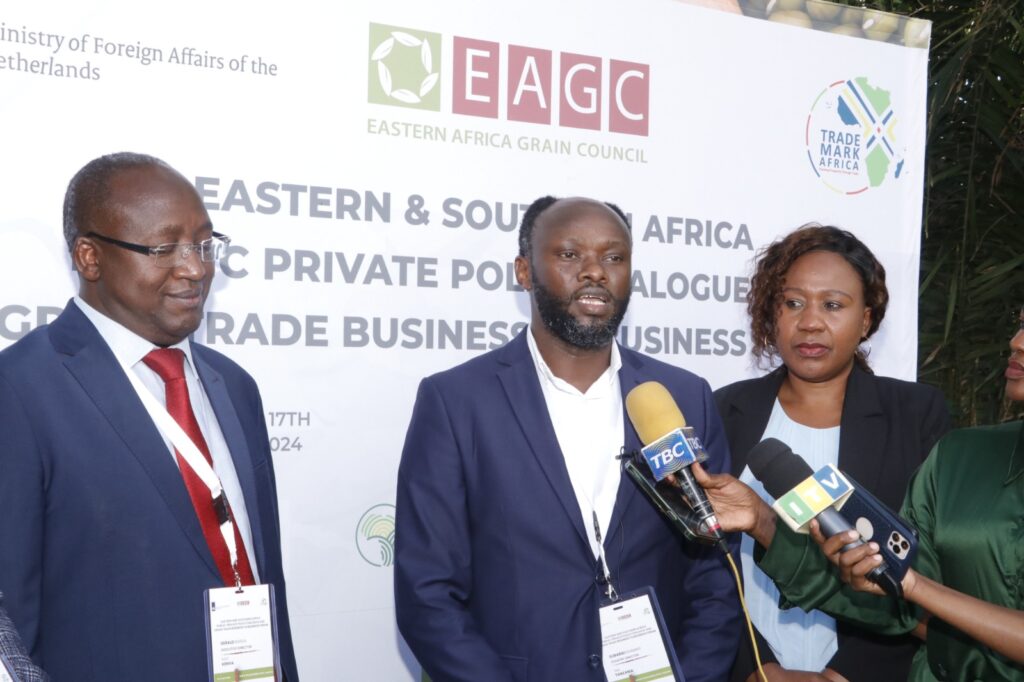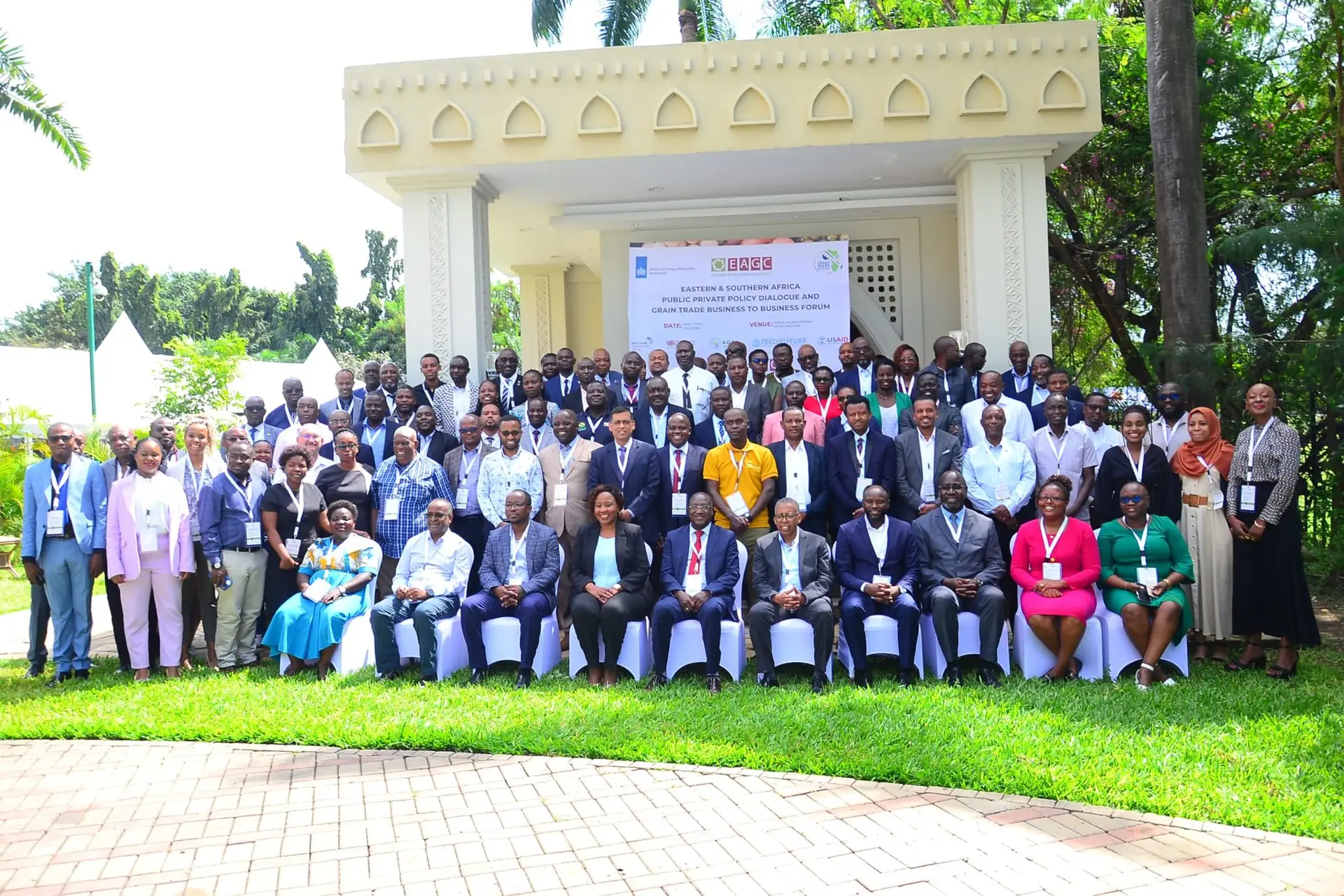[Dar es Salaam, Tanzania – July 17, 2024] TradeMark Africa (TMA), in collaboration with the Eastern Africa Grain Council (EAGC) and the Alliance for a Green Revolution in Africa (AGRA), successfully concluded a two-day Eastern and Southern Africa Public-Private Policy Dialogue and Grain Trade Business-to-Business Forum on July 16-17, 2024. The event convened 120 delegates, including producers, traders, millers, and exporters from nine countries: Kenya, Uganda, Tanzania, Rwanda, Burundi, Democratic Republic of Congo (DRC), Malawi, Zambia, and Ethiopia.
The forum, funded by the governments of the Netherlands and USAID’s Economic Recovery and Reform Activity (USAID-ERRA) program and implemented by TMA, alongside the Food Trade Coalition for Africa (FCTA) and UK International Development, aimed to foster productive dialogue and collaboration among key stakeholders in the staple foods value chain. It addressed critical challenges such as the impact of Southern Africa drought on the region’s food security, export bans and non-tariff barriers (NTBs) that hinder regional trade.
The forum featured keynote speeches, panel discussions, a regional grain trade business-to-business (B2B) sessions, and an exhibition of grain value chain technologies and services. It provided a platform to explore regional trade opportunities and address logistical challenges, ultimately facilitating the seamless movement of food from regions of surplus to regions of need.

The regional grain trade B2B forum resulted to signing of trade contracts amounting to 748,854 MT of assorted grains and pulses valued at USD 409M expected to be traded across the region.This demonstrates the enormous potential and demand for staple foods from surplus to deficit regions, emphasizing the importance of seamless trade.
The Council, in collaboration with various partners, have been actively developing and implementing interventions to enable trade through several projects and service pillars. Notably, the EAGC-TradeMark Africa (TMA) partnership is addressing challenges in the export value chain via the “Strengthening Competitiveness in Export-Oriented Staple Food Value Chains in East Africa” project. This project primarily focuses on the Uganda-Kenya and Tanzania-Kenya corridors while also considering Malawi and Zambia as commodity sources.
Additionally, EAGC’s partnership with AGRA on the “Stimulating Inclusive Export-Oriented Pulses Trade in the Northern Corridor of Eastern Africa” project aims to enhance trade, income, and job creation for youths and women in the pulses export value chain between Ethiopia and Kenya. This involves providing BDS services, establishing trade linkages with Kenyan off-takers, and hosting stakeholder dialogues to address trade bottlenecks. Moreover, the USAID Trade and Investment Hub initiative previously supported EAGC in hosting regional B2B forums, resulting in significant grain trade volumes across the region.
Key recommendations were made to enhance regional trade. Firstly, there was a need to enhance collaboration between public and private sectors in developing trade policies to ensure they reflect the perspectives and needs of all stakeholders. Increased bilateral discussions between governments was crucial to establish mechanisms that support regional trade and resolve trade issues to keep borders open. Continued engagement between trade facilitating agencies and the private sector to support intra-regional trade, and finally, strengthening existing platforms for private and public sectors to address grain trade facilitation and capacity building, especially for SMEs, was essential.
*ENDS*


